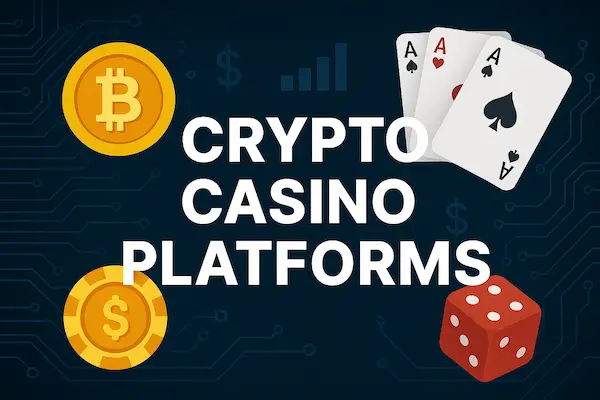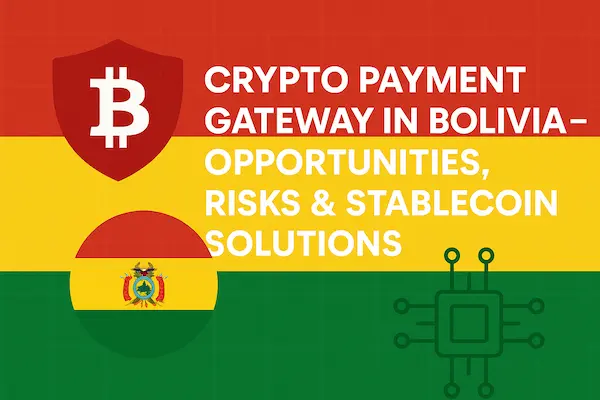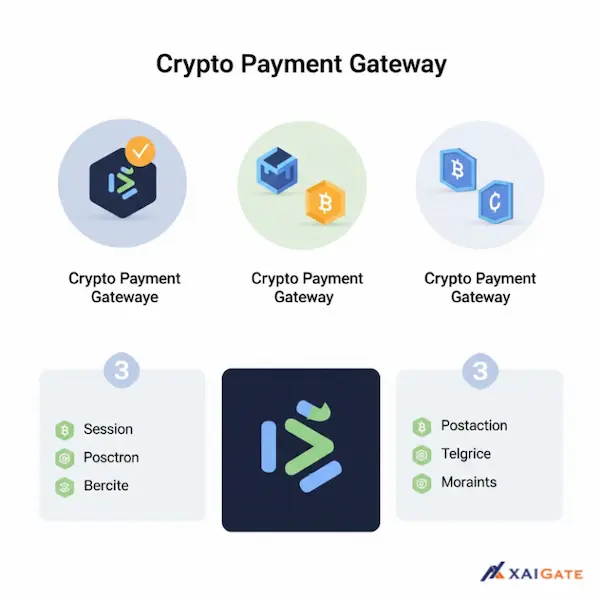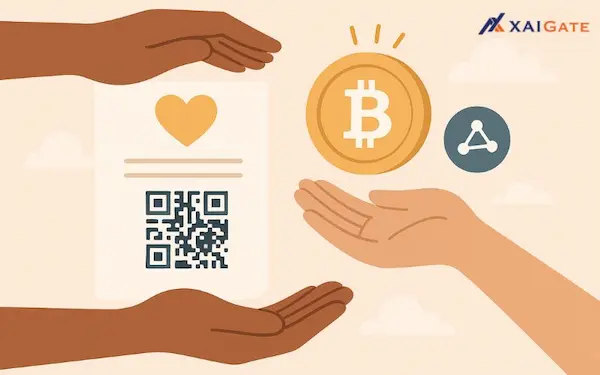Contents
- 1 1. Introduction – The Rise of Crypto Casino Platforms
- 2 2. Why Crypto Casino Platforms Are Reshaping Online Gambling
- 3 3. Global Market Outlook: Crypto Casino Platforms by 2030
- 4 4. Core Features Defining Next-Gen Crypto Casino Platforms
- 5 5. Regulatory Landscape in 2025–2030
- 6 6. Security & Trust – Preventing Hacks in Crypto Casino Platforms
- 7 7. The Role of Stablecoins in Driving Mass Adoption
- 8 8. Future Innovations Transforming Crypto Casino Platforms
- 9 9. Case Studies: Leading Crypto Casino Platforms in 2025
- 10 10. Challenges Ahead for Crypto Casino Platforms
- 11 11. Quick Summary Table – Advantages vs. Challenges
- 12 FAQs – Crypto Casino Platforms
- 13 Conclusion – The Road to 2030
1. Introduction – The Rise of Crypto Casino Platforms
Over the past decade, the gambling industry has experienced one of the most dramatic digital transformations in its history. Traditional online casinos, once considered cutting-edge, are now being challenged by a new wave of innovation: crypto casino platforms. These blockchain-powered systems are changing how players deposit, wager, and withdraw funds, offering speed, transparency, and global accessibility unmatched by conventional payment methods.
What makes this shift particularly remarkable is the timing. As regulators, payment processors, and gaming operators look toward the future of online gambling, crypto solutions are moving from niche adoption to mainstream demand. By 2030, analysts predict that crypto casino platforms will no longer be viewed as experimental alternatives, but rather as the backbone of digital gambling ecosystems worldwide.
Unlike older platforms that depend heavily on credit cards and bank transfers, crypto casinos thrive on stablecoins such as USDT, USDC, and PYUSD, ensuring players can avoid volatility while still enjoying the benefits of blockchain technology. For operators, this means lower transaction costs, instant settlements, and the ability to reach a borderless audience without being restricted by banking systems.
This article explores why crypto casino platforms are poised to dominate online gambling in the years ahead, what features define the next generation of platforms, and how innovations like AI, DeFi, and the metaverse will reshape the player experience by 2030.

2. Why Crypto Casino Platforms Are Reshaping Online Gambling
The gambling industry is entering a new era where crypto casino platforms are no longer just an alternative, but a disruptive force. Their appeal comes from speed, transparency, and accessibility that traditional systems simply cannot match. Below are the key reasons why these platforms are reshaping the future of online gambling.
1. Lower Transaction Costs & Faster Payments
Traditional payment methods like credit cards and PayPal typically charge 2–4% per transaction and often delay payouts for days. By contrast, crypto casino platforms can settle transactions for less than 1%, with blockchain confirmations completed in minutes. This efficiency benefits both players, who enjoy faster withdrawals, and operators, who see higher margins.
2. Blockchain Transparency Builds Trust
One of the biggest challenges in online gambling is trust. With blockchain-based systems, every transaction is recorded on a public ledger, allowing players to independently verify deposits, wagers, and payouts. This transparency minimizes disputes, eliminates manipulation concerns, and increases confidence among players worldwide.
3. Borderless Accessibility for Global Players
In many regions, banking restrictions or local laws prevent users from accessing traditional gambling platforms. Crypto casino platforms overcome these barriers by allowing anyone with a digital wallet to participate. This is particularly transformative in Latin America, Southeast Asia, and Africa, where access to global payment systems is limited but mobile adoption is booming.
4. Stablecoins Reduce Volatility Risks
One concern for players has been the volatility of cryptocurrencies like Bitcoin and Ethereum. Today, stablecoins such as USDT, USDC, and PYUSD provide a solution. These tokens are pegged to fiat currencies, ensuring stable value while retaining the benefits of blockchain speed and security. This combination makes crypto casino platforms more appealing to mainstream users.
5. A New Standard of Fairness and Security
By leveraging smart contracts and decentralized payment rails, crypto casino platforms eliminate many weaknesses of traditional systems. Fraud, chargebacks, and hidden fees become far less common. In this way, blockchain doesn’t just provide efficiency—it redefines fairness in online gambling.
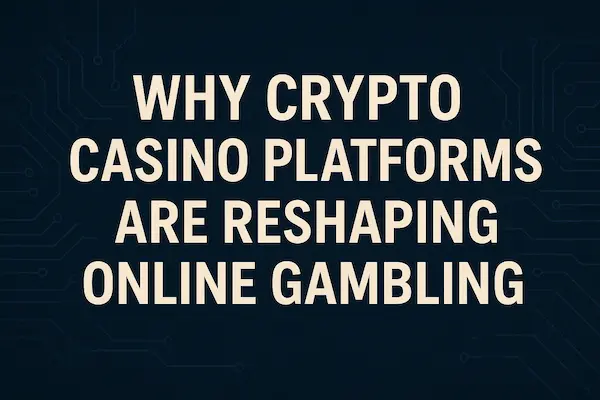
Table 1: Key Advantages vs. Challenges of Crypto Casino Platforms
| Category | Highlights |
|---|---|
| Main Benefits | – Near-instant deposits & withdrawals – Transaction fees often below 1% – Global accessibility with no banking restrictions – Transparent, tamper-proof records via blockchain – Stablecoin adoption reduces price volatility |
| Emerging Opportunities | – Integration with DeFi (staking, yield, liquidity pools) – NFT-based rewards and digital collectibles – AI-driven personalization for player engagement – VR & metaverse casinos enhancing immersion |
| Key Challenges | – Lack of unified international regulations – Cybersecurity threats and potential hacks – User education and trust barriers – Competition from traditional operators – Compliance costs and reliance on stablecoin issuers |
3. Global Market Outlook: Crypto Casino Platforms by 2030
The global online gambling market is evolving rapidly, and crypto casino platforms are emerging as a central driver of this growth. By 2030, industry analysts project that blockchain-based casinos could account for a significant share of worldwide online betting revenues. Several factors explain why the outlook is so promising.
Explosive Growth in Player Adoption
Player adoption of crypto casino platforms has accelerated in recent years. Younger audiences, especially Millennials and Gen Z, are more comfortable using digital wallets and stablecoins than traditional banking methods. As this demographic continues to dominate the iGaming market, the shift toward crypto solutions is expected to grow exponentially.
Regional Hotspots: Asia, Europe, and Latin America
Geography plays an important role in market expansion. In Asia, strong smartphone penetration and digital payment culture make it fertile ground for blockchain casinos. Europe is expected to remain the most regulated but also the most lucrative market due to clear licensing frameworks. Meanwhile, Latin America is emerging as a hotbed of adoption, with countries like Brazil and Argentina driving user growth.
Mobile-First Gaming Dominance
By 2030, the majority of online gambling is projected to happen on mobile devices. Crypto casino platforms are particularly well-suited to this trend, as blockchain transactions are seamless on mobile wallets. Mobile-first adoption ensures that even players in underbanked regions can participate in global online casinos.
Revenue Projections for 2030
Market researchers forecast that the global crypto gambling industry could surpass $100 billion in annual revenue by 2030, fueled by mainstream adoption of stablecoins, reduced reliance on traditional payment processors, and the rise of decentralized finance. This positions crypto casino platforms not just as competitors to traditional casinos, but as the future backbone of the iGaming industry.
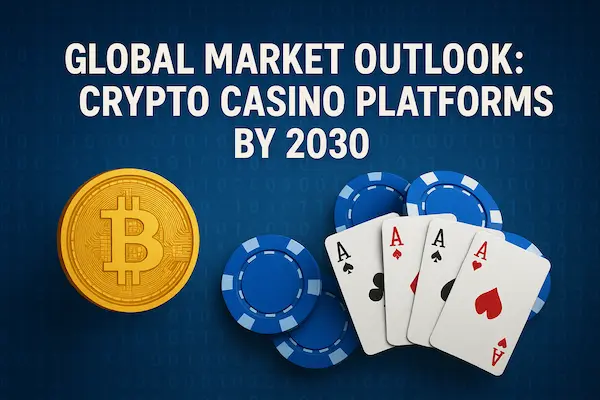
4. Core Features Defining Next-Gen Crypto Casino Platforms
As the online gambling industry evolves, next-generation crypto casino platforms are setting new benchmarks. Their unique features go beyond payments, shaping how players interact, trust, and stay engaged.
Multi-Currency and Stablecoin Integration
The ability to support multiple cryptocurrencies is no longer optional. Leading platforms now integrate Bitcoin, Ethereum, and especially stablecoins like USDT, USDC, and PYUSD. These stablecoins reduce volatility risks and create a smoother experience for players who want reliable value when placing bets.
Transparent Blockchain-Based Gaming
Fair play is a cornerstone of trust. Crypto casino platforms leverage blockchain technology to create verifiable games where outcomes are provably fair. Players can independently check algorithms, ensuring the system cannot be manipulated by operators.
Instant Settlements with Low Fees
One of the strongest advantages of crypto casino platforms is speed. Traditional methods may take days for withdrawals, while blockchain transactions are settled within minutes. Combined with fees under 1%, operators save money and players enjoy fast, hassle-free payouts.
Enhanced Security and Anti-Fraud Measures
Security remains a critical issue in online gambling. Platforms are increasingly using multi-signature wallets, cold storage, and smart contract audits to protect both funds and data. By reducing fraud and chargebacks, these casinos establish a higher level of trust with global audiences.
Mobile and Cross-Platform Gaming
The dominance of mobile-first experiences is reshaping iGaming. Modern crypto casino platforms are optimized for smartphones, tablets, and desktops, ensuring seamless gameplay. This accessibility is particularly important in emerging markets where mobile devices are the primary gateway to the internet.
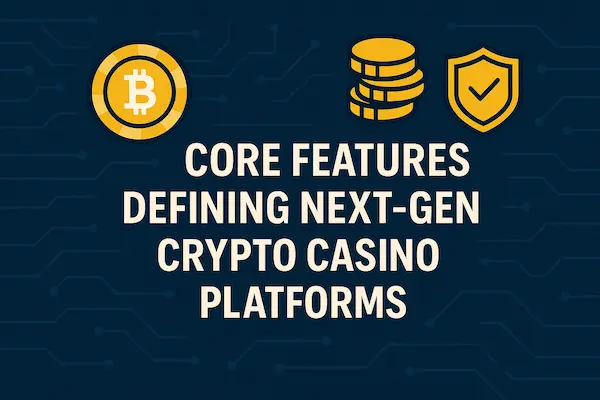
5. Regulatory Landscape in 2025–2030
The success of crypto casino platforms is not only driven by technology and player adoption but also by how governments regulate this fast-evolving sector. From Europe to Latin America, lawmakers are trying to balance innovation with consumer protection, and the outcome will determine the pace of growth toward 2030.
1. European Union Regulations
The European Union has traditionally been a leader in online gambling regulation. Its upcoming directives will likely apply to crypto casino platforms as well, introducing more structured requirements around AML (Anti-Money Laundering) and KYC (Know Your Customer) checks. This could raise operational costs for smaller operators, but it will also strengthen transparency and consumer trust. For players, EU-regulated casinos are often seen as safer, providing the credibility needed for mass adoption.
2. United States Policies
The United States presents both opportunity and complexity. Online gambling laws are currently fragmented, with each state applying different rules. While Nevada and New Jersey are experimenting with digital betting systems, other states remain cautious. By 2030, federal-level guidance may finally emerge, giving crypto casino platforms a clearer legal framework. If the U.S. embraces blockchain gambling, it could unlock one of the largest player markets in the world.
3. Asia-Pacific Market Rules
The Asia-Pacific region is marked by contrasts. Japan and South Korea are steadily moving toward regulated crypto gambling ecosystems, integrating blockchain payments into existing casino laws. China, on the other hand, maintains strict prohibitions on both gambling and cryptocurrency. For operators, this means that entry strategies must be tailored carefully to each jurisdiction. Still, given Asia’s huge mobile-first population, the region remains one of the most promising markets for crypto casino platforms.
4. Latin America’s Rapid Adoption
Latin America is quickly becoming a growth hub for blockchain gambling. Economic instability, high inflation, and limited access to traditional banking have made crypto casino platforms especially attractive. Countries like Brazil, Argentina, and Mexico are exploring licensing frameworks that could encourage regulated adoption while generating much-needed tax revenues. If these policies move forward, Latin America could become a model for how emerging markets embrace crypto gambling at scale.
Table 2: Regional Outlook (2025–2030)
| Region | Market Direction | Regulatory Climate |
|---|---|---|
| Europe | Strong growth with stablecoin use; players attracted by transparent rules | Moving toward strict AML/KYC frameworks |
| North America (U.S.) | Gradual adoption; fragmented market depending on states | Federal regulation remains unclear, but momentum building |
| Asia–Pacific | Rapid adoption in Japan, South Korea, India; large mobile user base | Mixed: some nations support, others ban or restrict crypto gambling |
| Latin America | Attractive due to inflation and banking gaps; crypto adoption growing fast | Generally open, but regulations still developing |
6. Security & Trust – Preventing Hacks in Crypto Casino Platforms
Trust is the foundation of any gambling system, and for crypto casino platforms, security is the number one priority. Players want to know their funds are safe, while operators must ensure games cannot be manipulated. Recent high-profile hacks in the crypto sector have placed security under the spotlight, making advanced protection measures a competitive necessity.
Lessons from Past Hacks
The industry has witnessed multi-million-dollar breaches where platforms lost user funds due to weak wallet systems or vulnerabilities in smart contracts. These cases created skepticism around crypto casinos in their early days. However, they also pushed operators to improve, adopting more resilient infrastructures that today define the best crypto casino platforms.
Advanced Wallet Protection
Funds stored on gambling platforms are a prime target for attackers. To counter this, leading operators use multi-signature wallets, which require multiple approvals before funds can be moved, and cold storage solutions, which keep assets offline. These methods drastically reduce the risk of theft and reassure players that their winnings remain secure.
Smart Contract Audits
Since many games on crypto casino platforms rely on smart contracts, ensuring the integrity of code is vital. Independent cybersecurity firms are now regularly auditing gaming protocols to identify weaknesses before they can be exploited. This not only minimizes the risk of hacks but also enhances credibility by showing players that systems are independently verified.
Building Player Confidence
Beyond technical measures, platforms must actively build trust with their communities. Publishing transparency reports, sharing audit outcomes, and implementing provably fair gaming models allow players to verify that outcomes are not rigged. The more open and accountable a platform is, the more likely it is to retain long-term players in an increasingly competitive market.

7. The Role of Stablecoins in Driving Mass Adoption
One of the main barriers to early crypto gambling was volatility. Players who deposited Bitcoin or Ethereum often saw their balances fluctuate wildly, making consistent gameplay difficult. Today, the integration of stablecoins has removed that barrier and positioned crypto casino platforms for mainstream adoption.
Why Stablecoins Matter for Players
Stablecoins such as USDT, USDC, and PYUSD are pegged to fiat currencies like the U.S. dollar, which ensures value stability. For players, this means deposits and winnings are no longer subject to the ups and downs of the crypto market. A wager placed in USDC today will have the same value tomorrow, making budgeting and risk management far easier for recreational and professional gamblers alike.
Benefits for Casino Operators
For operators, stablecoins simplify liquidity management. Unlike traditional payment gateways, where settlements can take days, stablecoin transactions settle almost instantly on blockchain networks. This allows operators to pay out winnings faster, reduce chargebacks, and lower processing costs. The reliability of stablecoins is one reason many crypto casino platforms now prioritize them over more volatile digital assets.
Expanding Global Reach
Stablecoins also make gambling more inclusive. In countries where local currencies are unstable or banking systems are unreliable, stablecoins provide a consistent store of value. This is especially attractive in markets like Latin America, Southeast Asia, and parts of Africa, where access to global payment systems is limited. With only a mobile phone and a wallet app, players can participate in crypto casinos without needing a bank account.
Case Studies of Stablecoin Adoption
Several leading crypto casino platforms have already integrated stablecoins as their primary payment option. These platforms report higher transaction volumes, improved user retention, and greater appeal to mainstream audiences. As more operators adopt stablecoins, industry experts expect them to become the default currency of crypto gambling by 2030.
The Path to Mass Adoption
Stablecoins represent the missing link between traditional money and blockchain-based gaming. By reducing volatility while maintaining all the benefits of decentralization, they enable crypto casino platforms to attract millions of new users. This combination of stability and speed could be the factor that finally pushes crypto gambling into the global mainstream.
8. Future Innovations Transforming Crypto Casino Platforms
The future of crypto casino platforms is not just about faster payments and regulatory compliance. Emerging technologies such as DeFi, AI, NFTs, and the metaverse are poised to redefine how players interact with online casinos, creating a new era of immersive and personalized gambling.
1. DeFi Integration and Player Finance
Decentralized Finance (DeFi) is reshaping the way money moves online. When integrated into crypto casino platforms, DeFi enables new features such as staking rewards, liquidity pools, and yield farming for players. Instead of simply betting, users can also earn passive income from their holdings while staying within the same gambling ecosystem. This combination of gaming and finance could become a key differentiator by 2030.
2. AI-Powered Personalized Gaming
Artificial Intelligence is increasingly being applied to iGaming. For crypto casino platforms, AI can analyze player behavior to deliver personalized game recommendations, dynamic odds, and responsible gambling tools. By tailoring experiences to individual preferences, AI makes platforms more engaging while also promoting safer play.
3. NFT Rewards and Digital Ownership
NFTs are adding a new layer of engagement to online gambling. Crypto casino platforms are beginning to issue NFT-based loyalty rewards, collectibles, and even in-game assets that players can trade or sell. Unlike traditional loyalty points, NFTs carry real-world value and create a sense of ownership, deepening player loyalty.
4. Virtual Reality and Metaverse Casinos
Perhaps the most transformative innovation lies in VR and the metaverse. Imagine entering a digital casino where you walk across a lobby, sit at a poker table, and interact with other players — all powered by blockchain payments. Some early projects already exist, but by 2030, fully immersive metaverse casinos could be mainstream, turning online gambling into a social, interactive experience rather than a solitary one.
5. A Convergence of Technologies
What makes the next generation of crypto casino platforms so exciting is not just each technology on its own, but how they converge. A single platform might allow a player to deposit USDC, stake tokens in a DeFi pool, receive NFT rewards, and enter a VR casino room — all in one seamless experience. This fusion of innovation is likely to push adoption far beyond niche audiences, attracting mainstream players from around the world.
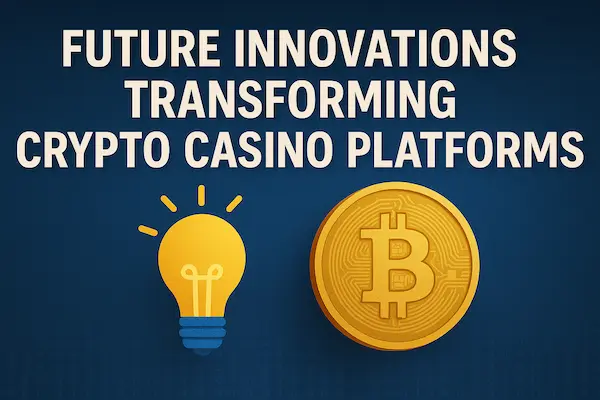
9. Case Studies: Leading Crypto Casino Platforms in 2025
The market for crypto casino platforms is already competitive, with several providers setting benchmarks for innovation, security, and user experience. Examining current leaders helps highlight the strategies that are shaping the future of online gambling.
1. XaiGate – Stablecoin-Focused Efficiency
XaiGate has quickly positioned itself as one of the most reliable crypto casino platforms by emphasizing stablecoin payments. Its integration of USDT, USDC, and PYUSD ensures that both operators and players avoid volatility risks. XaiGate also offers developer-friendly APIs, allowing casinos to integrate payments seamlessly into existing systems. This focus on stability and ease of use makes it a strong choice for operators entering the crypto gambling market.
2. BitPay – Trusted Brand with Global Reach
BitPay, one of the oldest crypto payment processors, has expanded into gambling by offering solutions for online casinos. Its reputation for compliance and fraud prevention has given it credibility in markets where regulation is strict. Although not exclusively built for iGaming, BitPay’s global reach and strong security protocols have made it a trusted name among casino operators.
3. CoinPayments – Multi-Currency Flexibility
CoinPayments distinguishes itself by supporting hundreds of cryptocurrencies, giving players the freedom to gamble with their preferred digital assets. For operators, this wide coverage opens access to niche audiences beyond Bitcoin and Ethereum. However, its greatest strength also brings complexity, as managing so many assets requires robust backend systems to ensure security and smooth payouts.
4. Coinbase Commerce – Exchange-Integrated Advantage
Backed by one of the largest crypto exchanges, Coinbase Commerce has entered the iGaming market with powerful brand recognition. Its ability to connect casino payments directly to the Coinbase ecosystem allows for instant liquidity conversion between crypto and fiat. For crypto casino platforms targeting mainstream audiences, Coinbase Commerce provides a layer of trust that few competitors can match.
5. Key Takeaways from Market Leaders
These case studies reveal a critical insight: while all crypto casino platforms aim to deliver fast, secure, and transparent payments, their strategies differ. Some focus on stablecoin adoption, others on multi-currency flexibility, and others on brand trust. By 2030, the most successful platforms will likely be those that combine all three elements — stability, flexibility, and credibility — into one seamless experience.
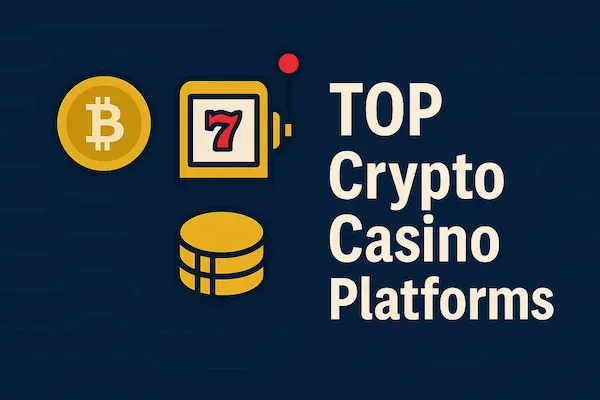
10. Challenges Ahead for Crypto Casino Platforms
Despite their rapid growth and exciting potential, crypto casino platforms face several obstacles that could slow down mainstream adoption. Understanding these challenges is essential for both operators and investors preparing for the next decade.
Regulatory Uncertainty Across Markets
The most pressing challenge remains the lack of consistent regulations worldwide. While the European Union is developing clear licensing frameworks, other regions such as the United States and Asia have fragmented or restrictive policies. This patchwork makes it difficult for crypto casino platforms to expand globally without facing legal risks.
Security Threats and Cyber Attacks
Even as platforms adopt multi-signature wallets and smart contract audits, cybersecurity threats remain constant. Hackers are continuously looking for weaknesses, and a single breach can damage trust for the entire industry. Operators must keep investing heavily in security infrastructure to maintain credibility.
Player Trust and Education
Although blockchain offers transparency, many mainstream players still hesitate to use crypto. Complex wallet setups, unfamiliar interfaces, and fears of volatility can discourage newcomers. Crypto casino platforms need to focus on user education, simpler onboarding processes, and clear communication to overcome this trust gap.
Competition from Traditional Casinos
Established online casinos are not standing still. Many traditional operators are exploring blockchain payments and may soon compete directly with crypto-native platforms. With bigger marketing budgets and established player bases, traditional casinos could slow down the growth of smaller crypto casino platforms unless they innovate continuously.
Scalability and Technology Costs
Running a blockchain-based casino at scale requires fast transaction throughput, reliable smart contracts, and secure infrastructure. As player numbers grow, platforms face higher operating costs and the need for constant upgrades. Balancing innovation with profitability will be a key challenge heading toward 2030.
Market Volatility and Stablecoin Dependence
While stablecoins reduce volatility, they also introduce dependency on external issuers like Tether, Circle, or PayPal. Regulatory scrutiny of stablecoins could impact their availability or create new compliance burdens for casinos. Platforms must diversify payment options to mitigate this risk.
11. Quick Summary Table – Advantages vs. Challenges
While crypto casino platforms are gaining momentum, they come with both strengths and hurdles. A side-by-side comparison helps highlight why adoption is growing and what obstacles remain before they dominate online gambling by 2030.
| Aspect | Advantages of Crypto Casino Platforms | Challenges to Overcome |
|---|---|---|
| Payments | Fast transactions, low fees, borderless settlements | Regulatory restrictions and compliance requirements |
| Security | Blockchain transparency, reduced fraud, no chargebacks | Persistent hacking threats and evolving cyber risks |
| Player Trust | Provably fair gaming, transparency through smart contracts | Lack of mainstream understanding and crypto education |
| Market Adoption | Growing globally, especially in Latin America and Asia | Uneven regulations across regions |
| Innovation | Integration with DeFi, NFTs, AI, and metaverse for immersive experiences | High technology costs and scalability concerns |
| Currency Stability | Stablecoin adoption reduces volatility risks | Dependence on third-party stablecoin issuers |
This quick summary makes it clear: the opportunities for crypto casino platforms are enormous, but operators must address trust, regulation, and security to achieve long-term dominance.
FAQs – Crypto Casino Platforms
1. What are Crypto Casino Platforms?
Crypto casino platforms are blockchain-based gambling systems that process payments in cryptocurrencies and stablecoins while ensuring transparent, provably fair gameplay.
2. Why are Crypto Casino Platforms growing so fast?
They are expanding due to instant payments, lower fees, global accessibility, and the popularity of stablecoins like USDT and USDC.
3. Are Crypto Casino Platforms legal in 2025?
Legality depends on the country. The EU is moving toward licensing, the U.S. has fragmented rules, and Asia shows mixed approaches.
4. Which stablecoins are most popular in crypto casinos?
USDT and USDC dominate the market, while PayPal’s PYUSD is gaining adoption thanks to strong regulation and brand trust.
5. How secure are Crypto Casino Platforms?
Leading platforms use multi-signature wallets, cold storage, and smart contract audits to protect funds and ensure fair play.
6. Do players need special wallets to join Crypto Casino Platforms?
Yes, players need a digital wallet, but modern apps make it easy with QR code payments and mobile-first features.
7. What role does DeFi play in Crypto Casino Platforms?
DeFi enables staking, liquidity pools, and rewards, turning casinos into ecosystems where players can both gamble and earn.
8. Will the metaverse change Crypto Casino Platforms by 2030?
Yes. VR and metaverse casinos will create immersive gambling experiences where players interact socially in 3D spaces.
9. How do traditional casinos compete with Crypto Casino Platforms?
Traditional operators are testing blockchain payments but may struggle to innovate as fast as crypto-native platforms.
10. What will Crypto Casino Platforms look like by 2030?
By 2030, they are expected to integrate stablecoin payments, AI personalization, NFT rewards, and VR casinos, dominating online gambling worldwide.
Conclusion – The Road to 2030
The trajectory of crypto casino platforms is clear: they are moving from niche innovation to mainstream adoption. By 2030, these platforms are expected to dominate online gambling through their ability to deliver faster payments, lower costs, transparent gameplay, and global accessibility. For players, this means a fairer, more secure experience; for operators, it means tapping into new revenue streams and worldwide audiences.
Yet the journey is not without challenges. Regulations remain inconsistent, security threats evolve daily, and traditional casinos are preparing their own blockchain-based solutions. The winners in this race will be the platforms that combine innovation with compliance, security, and user trust. Stablecoin integration, AI personalization, and immersive metaverse experiences will likely define the next generation of digital casinos.
Quick Takeaways
| Summary Points |
|---|
| Crypto casino platforms are shifting from niche to mainstream in online gambling. |
| Stablecoins (USDT, USDC, PYUSD) provide the stability needed for both players and operators. |
| DeFi, NFTs, AI, and metaverse integration are shaping the “next-gen” casino experience. |
| Legal uncertainty and cybersecurity remain the biggest hurdles. |
| By 2030, crypto casinos are positioned to become the backbone of the global iGaming industry. |
For investors and operators, the message is simple: the time to act is now. Those who embrace crypto casino platforms early, build trust with players, and adapt to regulations will be best positioned to lead the global iGaming industry in the decade ahead.
For daily updates, subscribe to XAIGATE’s blog!
We may also be found on GitHub, and X (@mxaigate)! Follow us!

